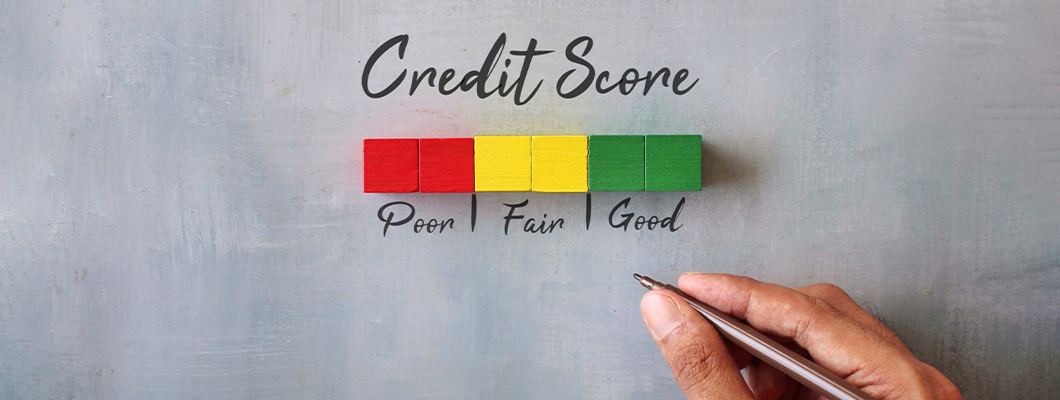
Credit Cards and Your Credit Score: What You Need to Know
Posted on Thursday, September 14th, 2023 | By IndusInd Bank
Credit cards and credit scores are intertwined terms that play an important role in lending, transactions, and the overall financial health of individuals. Let us explore the concept of credit scores, credit cards, the impact of credit cards on your credit scores and what you can to do get yourself a healthy credit score.
All you need to know about credit scores
Before you dive into what a credit card is and how it impacts your credit score, you must know what a credit score is all about.
What is a credit score?
A credit score is a three-digit number that serves as an indicator of your creditworthiness. With the help of this score, banks and financial institutions can assess if you can repay your debts on time. They approve loans based on this information.
What is a good credit score?
Credit scores range between 300 and 900. These scores fall into various categories, such as low, fair, good, and excellent. A credit score of 750 and above is considered to be excellent and should help you get your loan or credit card applications approved easily and at attractive interest rates. On the contrary, a low score makes banks think twice before approving your loan or credit card requests.
Factors considered for calculating your credit score
Four important factors are considered in calculating your credit score. Different credit bureaus may assign varying weightage to these factors, depending on their scoring models.
- Payment history
Maintaining a good credit score calls for paying your loan EMIs and credit card bills on time. Your repayment history will include all loans and credit cards in your name. It also gives crucial information on delays in payments, missed payments, and bankruptcy.
- Credit utilisation ratio
This is a vital factor in credit score calculation. The credit utilisation ratio refers to the total credit utilised against the available credit. A credit utilisation ratio exceeding 30% may negatively impact your credit score.
- Credit mix / total number of accounts
The credit score calculation is affected by your credit mix. To enhance your credit score, you can opt for different credit products like personal loans, auto loans, and credit cards. - Age of credit
You might often feel the need to close old credit cards if you aren’t using them. However, it is important to note that the older your credit card or your loans, the better it would be for your credit score calculation. A long credit history helps the lender make an informed decision on lending you credit.
What is a credit card?
A credit card is a credit facility offered by banks and financial institutions. This card allows you to make purchases and access funds up to a pre-approved limit. Whenever you use the card to pay for a purchase, the amount gets debited from the credit limit and not your bank account.
The credit limit of your credit card is decided by the card issuer after considering factors like your income, outstanding debts, and credit score.
For instance, IndusInd Bank offers a wide range of credit cards that cater to your different requirements. They offer various benefits like reward points, air miles, lounge access, etc. If you are someone who loves discounts and exclusive offers on dining, entertainment and shopping, the IndusInd Bank EazyDiner Credit Card would be apt for you.
Impact of credit cards on credit scores
When credit cards are used responsibly, they can have a positive impact on the factors considered while calculating your credit score.
- Payment history
If you pay your credit card bills on time and avoid delays or miss outs, it will have a positive effect on your payment history.
- Credit utilisation ratio
To have a positive credit utilisation ratio, you must maintain a low balance on your credit cards relative to the credit limit on them.
- Credit mix
You must always have a healthy credit mix of distinct credit cards and loans to boost your credit score. - New credit
You must remember that every credit card application might result in hard inquiries. This can damage your credit score. Ensure you apply for new loans or credit cards only if required.
- Age of credit
If you have a good payment history, then having old credit card accounts will have a positive impact on your credit score.
Common mistakes to avoid for maintaining a good credit score
Your credit score is an important indicator of your financial position. Even minor mistakes can hurt your credit score. Let us take a look at some common mistakes which you must avoid, to have a healthy credit score.
1. Delays in bill payment
The most common mistake that can harm your credit score is not paying your credit card bills or other EMIs on time. Your credit report will reflect any overdue payments for years. This can be harmful when you face a situation where you need to apply for a loan.
2. Taking multiple loans and credit cards
Applying for many loans or credit cards within a short period might not be taken lightly by lenders. Your credit report indicates all the inquiries made by you, along with the time frame. To avoid such scenarios, it is advised to conduct research on various credit facilities and opt for the one that matches your requirements and your financial goals.
3. Clearing just the minimum payment due
When paying your credit card bills, you are given the option to pay a minimum amount or clear the entire bill. If you opt for the minimum payment, you must remember that interest will be charged on the balance amount and will be reflected in your next bill.
Clearing just the minimum payment due regularly will also negatively impact your credit score. Thus, you must always pay your credit card bills in full and on time.
4. Not monitoring credit reports
Not monitoring and reviewing your credit report along with your credit card statements could damage your credit score. There could be potential problems like fraudulent transactions which must be reported immediately.
You must check your reports regularly to ensure your dues are cleared on time and fix any errors and issues before they damage your credit score.
Conclusion
To achieve your financial goals, you must understand the relationship between your credit cards and your credit score. While credit cards can be a lifeline in emergencies, wise usage can also boost your creditworthiness.
With banks going digital in every aspect, you can easily apply for credit cards online. IndusInd Bank provides the convenience of applying for a credit card from the comfort of your home. It is a 100% digital application process requiring no physical documentation. You simply need to complete the application and complete a video KYC process and your credit card will be dispatched to you. So apply now for an IndusInd Bank Credit Card and take off on your journey to financial empowerment.
Disclaimer: The information provided in this article is generic in nature and for informational purposes only. It is not a substitute for specific advice in your own circumstances. Hence, you are advised to consult your financial advisor before making any financial decision. IndusInd Bank Limited (IBL) does not influence the views of the author in any way. IBL and the author shall not be responsible for any direct / indirect loss or liability incurred by the reader for taking any financial decisions based on the contents and information.



 Offers
Offers Rates
Rates Debit Card Related
Debit Card Related Credit Card Related
Credit Card Related Manage Mandate(s)
Manage Mandate(s) Get Mini Statement
Get Mini Statement
 categories
categories Bloggers
Bloggers Blog collection
Blog collection Press Release
Press Release


